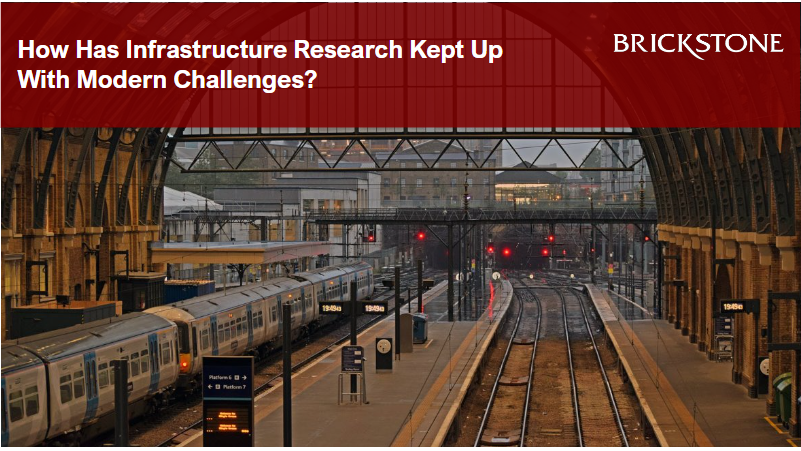How Has Infrastructure Research Kept Up With Modern Challenges?
How Has Infrastructure Research Kept Up With Modern Challenges?
The World Bank’s publication, ‘Is Infrastructure Research Keeping Up with Modern Challenges? Explores if and how current research on infrastructure is addressing the evolving challenges posed by environmental, technological, and socio-economic shifts. It emphasized the revolution of infrastructure research and recurring themes in the current times of infrastructure and also the impact infrastructure has on modern issues, such as climate resilience, digital infrastructure, and urbanization.
The article highlights the growing importance of interdisciplinary approaches and collaboration between practitioners, policymakers, and academics to continue keeping infrastructure planning and development aligned with these changing demands. While the publication delves into many of the issues, it doesn’t delve deeply into the specifics and case studies that portray success in research initiatives, and the recommendations on how to move forward remain broad and do not provide concrete steps or actionable strategies for collaboration between practitioners, policymakers and researchers.
Infrastructure research has evolved to meet the challenges of sustainability, with recent themes including Renewable Energy, Green Technologies, Climate Resilience, Technology Innovations, and Satellite Data. Over the last decade, through infrastructure research, green infrastructure has witnessed a growing acceptance as a viable means of reducing environmental impacts.
The green infrastructure consists of a network of natural and semi-natural landscapes and features that incorporate four categories: (i) energy & environment, (ii) ecological planning (iii) water resource management (iv) methods and tools. i.e. Noor Ouarzazate Solar Complex, one of the largest concentrated solar plants in the world that spans 3,000 hectares and is capable of generating up to 580 MW of electricity. It reduces carbon emissions by an estimated 760,000 tons annually, and the Kigali Green City Project is an ambitious project to develop Africa’s first ‘’green city’’ a sustainable urban settlement that will employ green building materials, energy-efficient designs, and renewable energy to minimize its environmental footprint with a focus on sustainable housing, efficient waste management, and water conservation.
Infrastructure research has played/plays a pivotal role in embracing digital innovation. This goes beyond projects that are being built today but on past infrastructure that’s being expanded, retrofitted, or repurposed to meet new needs and circumstances. There are now plenty of digital tools that allow project participants to generate, harvest, integrate, and analyze data to better see, plan for, manage, and understand the enormous complexities of mega projects.
This also includes efficiencies in infrastructure asset delivery through the effective combination of people and technology: tablets that allow engineers to better access, update, and share design plans. For example, electrical simulation software that facilitates the installation of renewable energy sites. Or cloud-based construction management tools that enable more efficient multi-stakeholder collaboration, while also giving developers, builders, and land planners actionable insights to reduce their carbon footprint.
This publication highlights critical gaps in infrastructure research, stressing the need for interdisciplinary collaboration and updated methodologies. However, while it successfully addresses the challenges, it falls short on specificity and actionable recommendations. I would recommend this article to policymakers, infrastructure researchers, and academics interested in understanding the broader scope of infrastructure challenges, but it would be more useful with practical, detailed examples.
This article by Brickstone reviews the World Bank’s publication on is infrastructure research keeping up with modern challenges.
Read the complete publication here.





